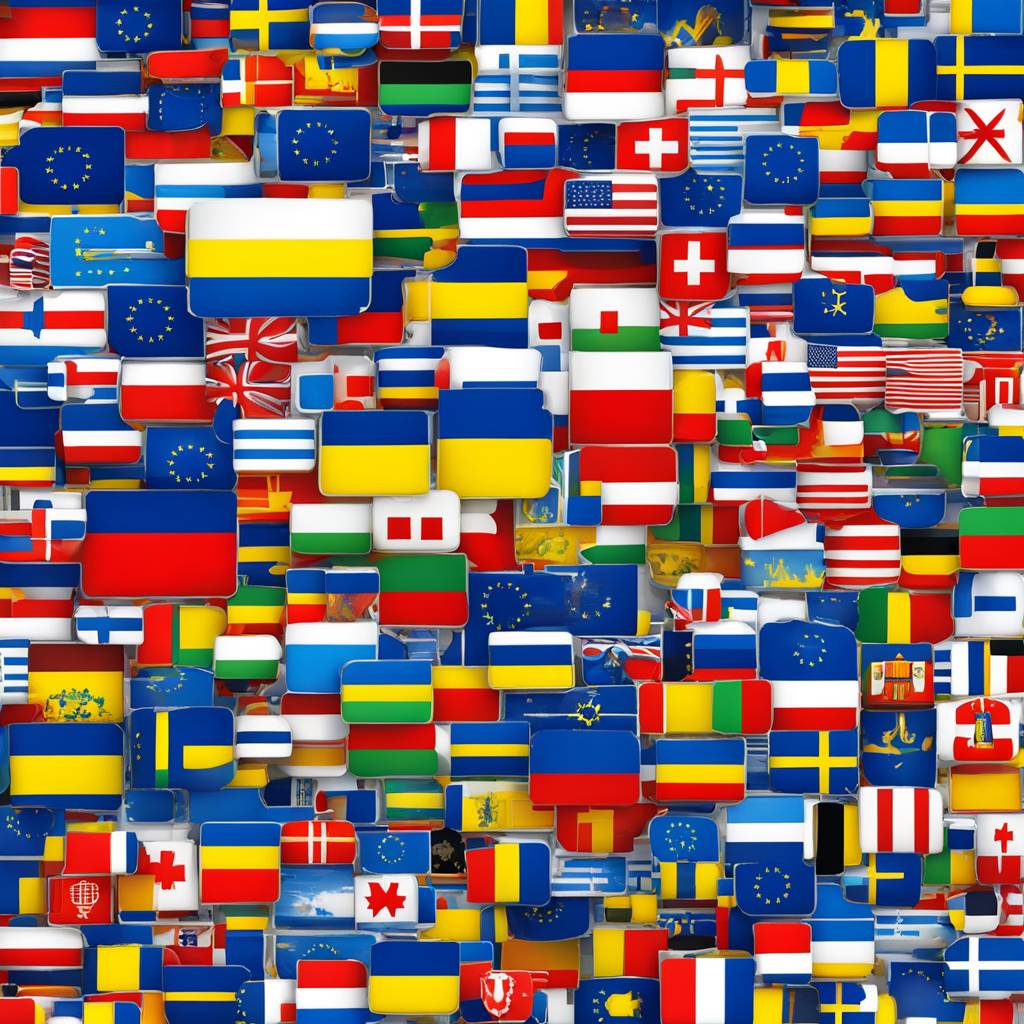Most respondents in an exclusive IPSOS/Euronews poll believe that support to Ukraine should continue, but they are divided on whether it should be a priority for the next mandate. The poll, which included nearly 26,000 respondents from 18 EU countries, found that 36% of Europeans view aid to Ukraine as a priority, while 36% see it as important but not a priority, and 27% consider it a secondary issue. Views on assistance to Ukraine vary across different EU member states, with respondents from Nordic countries being the most vocal in supporting aid as a priority.
In countries like Hungary, Greece, Romania, and Slovakia, the majority of respondents view aid to Ukraine as a secondary issue. German, Polish, and Czech respondents, where governments are significant donors of military assistance to Ukraine, also show signs of aid fatigue. The discontent in Eastern Europe and in member states bordering Ukraine is partly due to the import of Ukrainian agricultural products, which has been a point of contention among European farmers. Political ideology also plays a role, with Green supporters overwhelmingly backing aid as a priority and supporters of the main three political groups in the European Parliament largely in favor of continued strong support to Ukraine.
The poll did not distinguish between different types of aid provided by the EU to Ukraine, which includes military, macro-financial, and humanitarian assistance. When asked about the EU’s impact on developments in Ukraine, respondents were split, with 36% believing the EU had a positive impact, 32% saying it was neither positive nor negative, and 31% viewing it as negative. The total amount of aid provided to Ukraine by EU member states is over €143 billion, with a significant portion pledged through the EU budget for financial, economic, and humanitarian support, as well as military assistance and support for refugees within the EU.
Over four million Ukrainian refugees have sought shelter in the EU since March 2022, with their basic needs provided through the Temporary Protection System. The EU has also implemented massive sanctions against Russia over its military aggression in Ukraine, including measures to limit Russian access to key goods and technologies as well as immobilizing over €300 billion from the Central Bank of Russia across the EU and G7 allies. Respondents from Nordic countries generally have a positive view of the EU’s impact in supporting Ukraine, while opinions are more mixed in countries like Romania, Slovakia, Italy, Austria, Greece, and Hungary, where many believe the EU’s impact has been ineffective.


